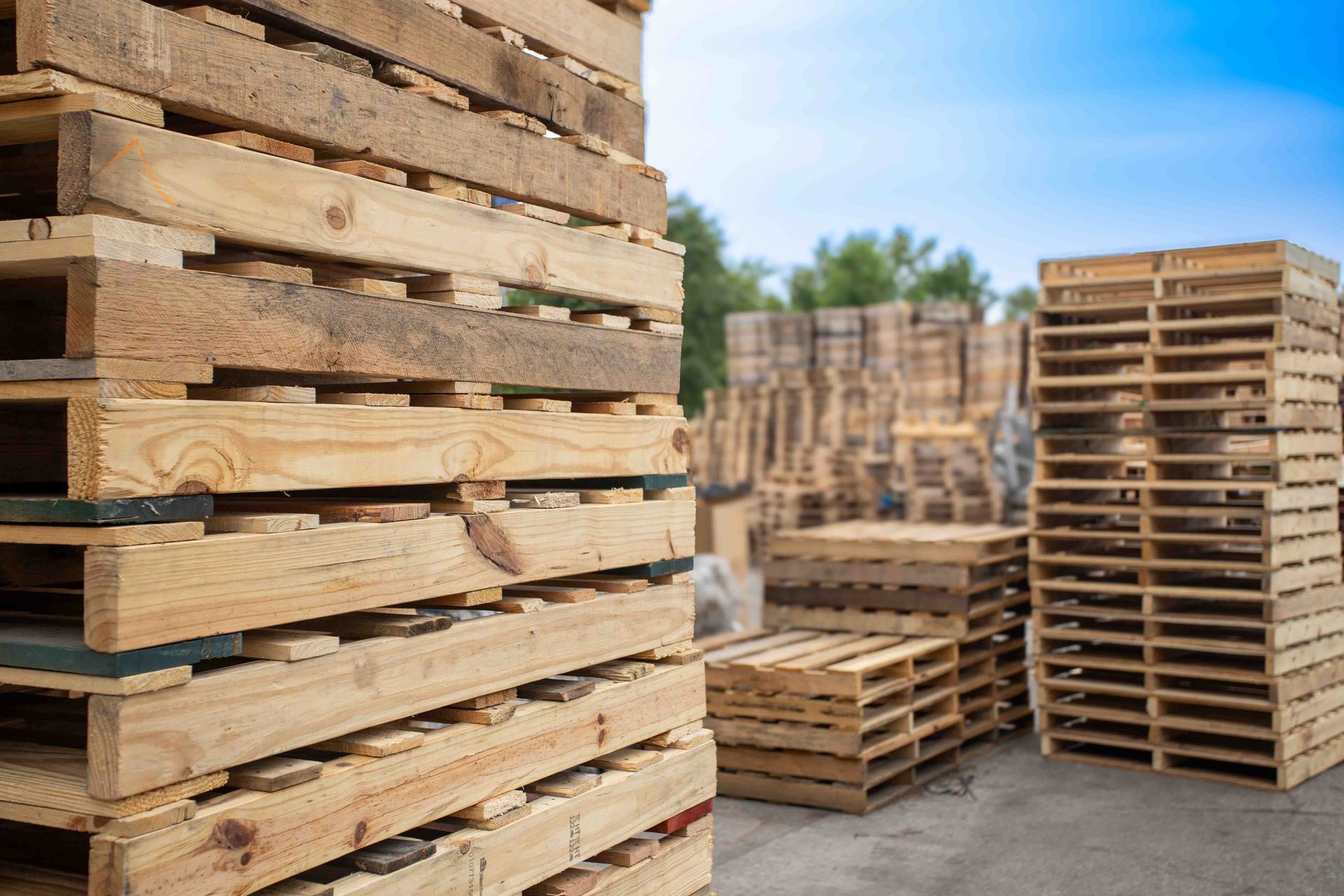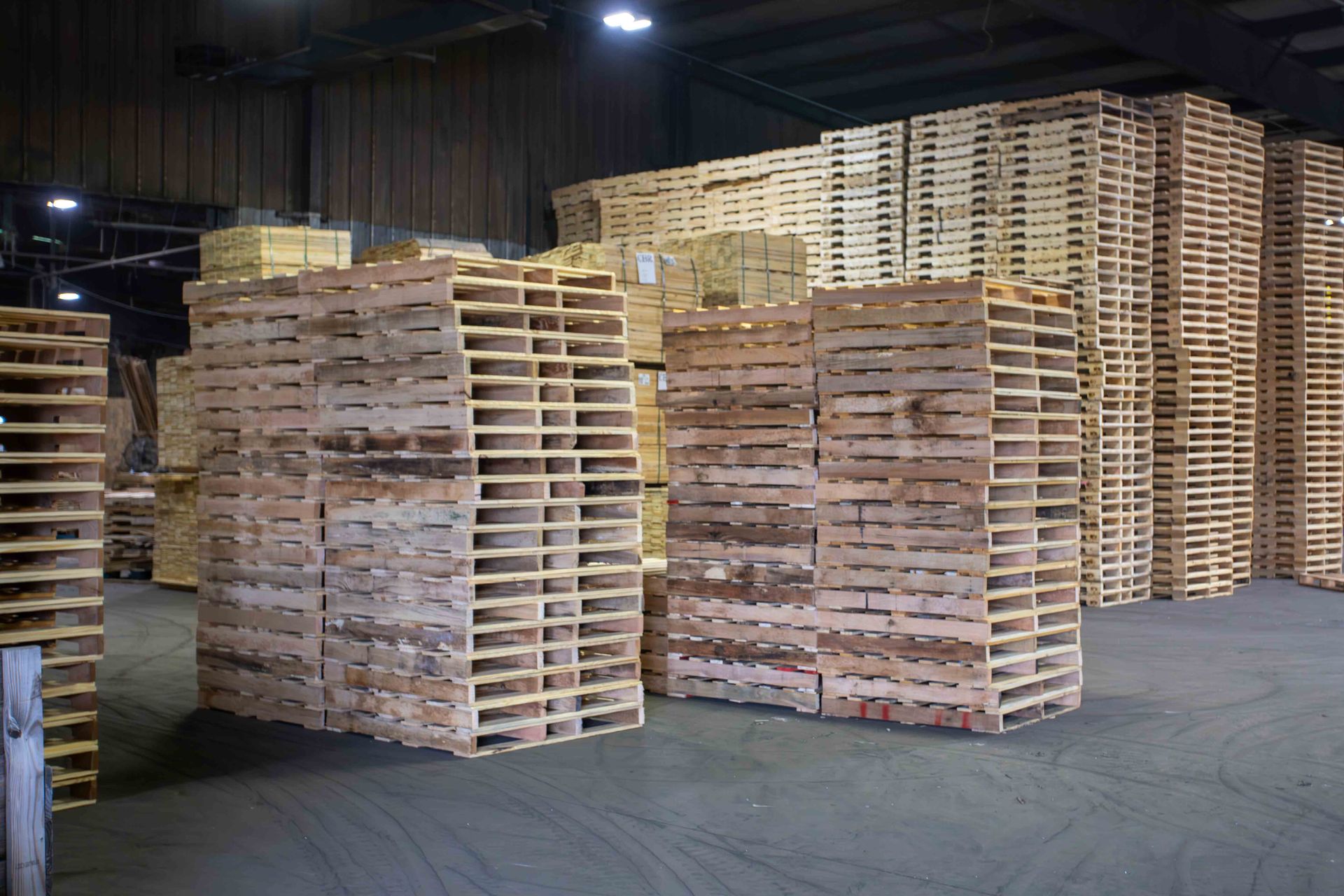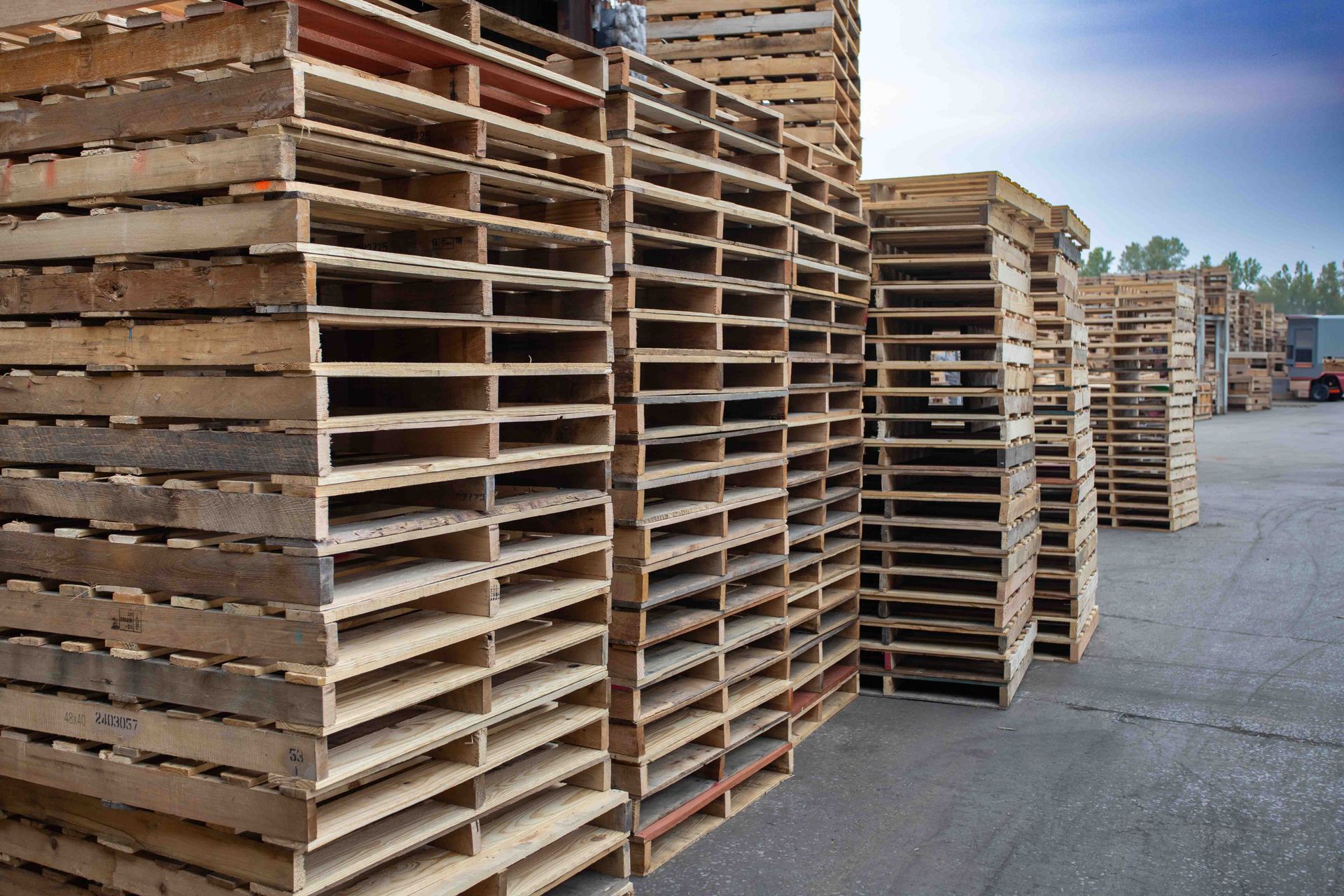The True Cost of Pallet Disposal (And How to Reduce It)
Pallets are essential in logistics, warehousing, and manufacturing. They facilitate the movement and storage of goods across supply chains.
However, when pallets become damaged or reach the end of their life cycle, companies often face the dilemma of how to dispose of them.
Many businesses overlook the full cost of pallet disposal, which can add up over time and significantly impact their bottom line.
By understanding the actual cost of pallet disposal and exploring strategies to reduce these expenses, companies can save money, improve sustainability, and increase operational efficiency.
The True Cost of Pallet Disposal
Pallet disposal is not just about getting rid of unwanted or damaged pallets. It's a multi-faceted process that involves several costs, some of which are hidden or indirect. Several factors contribute to the "actual" cost of pallet disposal.
Collection and Transportation Costs
The first step in pallet disposal is removing the used or damaged pallets from your facility.
If your company doesn't have an internal system for pallet collection, you'll need to rely on an external waste disposal service. Depending on the volume of pallets you're disposing of, these costs can quickly add up, mainly if your business location is far from the disposal site.
Transporting pallets to a recycling center or landfill requires labor and fuel, increasing the overall cost.
Landfill Fees
Pallets may end up in landfills if they can't be repurposed or recycled.
Many areas now impose tipping fees for waste disposal, and wood pallets are bulky and take up much space. The longer they sit in a landfill, the more costly it becomes for your business.
As landfill regulations tighten, companies may face rising disposal fees for waste materials like pallets, which can add to operating expenses.
Environmental Costs and Penalties
Increasingly, businesses are being held accountable for their environmental impact.
If your company does not dispose of pallets in an environmentally friendly way, it may face fines or reputational damage.
Customers and suppliers are becoming more conscious of sustainability, and failing to implement proper recycling practices can harm your corporate image.
Companies with poor environmental practices may also find it challenging to attract eco-conscious clients, limiting growth potential.
Lost Opportunities for Recycling Revenue
Many businesses don't realize that they could turn their pallet disposal process into a source of revenue by recycling or reselling pallets.
Without a recycling program, businesses miss out on the potential to sell damaged or used pallets to recycling centers or refurbishing companies.
If managed properly, these unused pallets could be an asset rather than a liability.
Operational Inefficiency
Managing pallet disposal can become time-consuming for employees, especially if there isn't a structured system in place.
Constantly dealing with waste removal can reduce productivity and distract from more pressing tasks. If your team spends more time dealing with pallet waste instead of focusing on core business functions, this will result in opportunity costs that can quickly add up.

How to Reduce the Cost of Pallet Disposal
While pallet disposal costs can be significant, companies can implement several strategies to reduce them and improve their overall waste management processes.
Implement a Pallet Recycling Program
One of the most effective ways to reduce pallet disposal costs is by setting up a recycling program.
Instead of sending used or broken pallets to the landfill, businesses can choose to recycle them. Many pallet companies (those that sell, service, and recycle wood pallets) offer pallet recovery and repair services.
By recycling pallets, you reduce waste and recapture some of the value from those materials. Pallet recycling centers will often pay for used pallets or allow you to exchange them for refurbished ones, reducing your overall disposal costs.
Repair and Reuse Pallets
Another cost-saving option is repairing damaged pallets rather than disposing of them.
Pallets are made of wood and can often take minimal effort to repair. If your company has an efficient pallet repair process, you can reuse many pallets instead of replacing them entirely.
Additionally, some companies specialize in pallet services and can refurbish your damaged pallets for you; this saves money on disposal and minimizes the need to buy new pallets.
Develop a Pallet Return Program
Establishing a pallet return program with customers or suppliers can significantly reduce disposal costs for businesses that rely heavily on pallets, such as those involved in shipping or manufacturing.
By arranging for the return of used pallets, you can create a circular system where pallets are reused, repaired, or recycled, keeping them out of landfills and saving on transportation costs.
Choose a Pallet Leasing Option
If your company regularly disposes of pallets, consider pallet leasing as an alternative.
Leasing pallets allows you to return the pallets after use, eliminating the need for disposal. Pallet leasing programs typically involve the company supplying pallets for your use, collecting the used pallets when they're no longer needed, and ensuring they are recycled or reused.
Pallet leases eliminate collection, transportation, and landfill costs while supporting sustainability efforts.
Educate Employees on Proper Handling and Storage
Pallet misuse is one of the leading causes of early pallet disposal. Training employees to properly handle pallets can prevent unnecessary damage.
Educating your staff on how to properly store, stack, and handle pallets can reduce the number of pallets that need to be disposed of prematurely, saving your business money in the long run.

Partner with a Trusted Pallet Service Provider in Global ICB
The true cost of pallet disposal goes beyond just the immediate fees associated with removal.
Businesses must consider transportation, landfill costs, environmental penalties, and lost revenue from missed recycling opportunities.
Companies can reduce these costs by implementing strategies like pallet recycling, repair, and reuse and creating a more sustainable, cost-effective system for managing pallet waste.
At Global ICB, we have over 35 years of experience selling, servicing, and recycling pallets of all materials, grades, and conditions. With competitive pricing, custom designs, and nationwide delivery, we can ensure that your pallet needs are met, optimized, and exceeded.
Contact us today to talk with one of our experts about your specific need!


